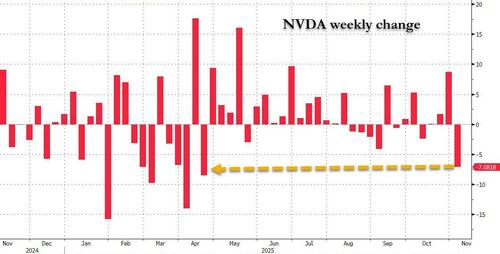The Biden administration finds itself simultaneously snubbed by two bitter rivals, Saudi Arabia and Iran. That’s quite a costly feat for the U.S., a nation that relies on stable oil prices to sustain a healthy economy.
Relentless pursuit of a chimerical nuclear deal with Iran—first by the Obama administration and now its Biden redux—has left Saudi Arabia with no trust in its former partner and protector. As a result, the kingdom, which
Joe Biden
once said he wanted to make a “pariah state,” has declared unequivocally its independence from American leadership by befriending Russia and China and cutting oil production to shore up its revenue despite repeated pleas from the White House.
How times have changed. Nearly a half-century ago, Saudi Arabia single-handedly rescued the U.S.—and the world economy—from recession by refusing a 15% price hike proposed by the oil cartel then dominated by the shah of Iran. When the cartel proceeded anyway, the Saudis flooded the market with oil, driving down prices and bankrupting Iran. In exchange the U.S. agreed to sell arms to Riyadh, beginning a 50-year buying spree that has made the kingdom the largest purchaser of U.S. weapons.
With a dramatic flair foreshadowing Crown Prince
Mohammed bin Salman’s
bravado, Saudi Oil Minister
Ahmed Zaki Yamani
arrived at the December 1976 cartel meeting in Doha, Qatar, to propose a six-month price freeze. Rebuffed by all cartel members, he walked out, returning eight hours later from Riyadh to announce the kingdom not only rejected a price hike but would enforce its decision by boosting its production from 8.5 million barrels a day to 11.8 million.
“Is it fair for others to decide [the price of Saudi crude] against our will?” he asked reporters as he stalked out of the meeting. The soon-to-be-overthrown shah called him “Judas Iscariot.”
In those days, the U.S. was dependent on foreign energy for 40% of its needs. By 2019 the U.S. was a net energy exporter. But thanks to President Biden’s suppression of domestic energy production in an effort to boost green energy, the U.S. this year is again a net energy importer.
Some things haven’t changed. The White House still puts domestic politics ahead of national interests. In the ’70s, as now, the White House begged the cartel to wait until after the U.S. elections to fiddle with prices.
Another thing that hasn’t changed is presidential blundering. Before resigning,
Richard Nixon,
like Mr. Biden, favored high prices as an incentive to develop alternative energy sources—and to fund Iran’s massive purchases of U.S. arms so the shah could serve as America’s bulwark for stability in the Mideast. That arms buildup in Iran alarmed Saudi Arabia then. Now the Saudi monarchy is fed up with Mr. Biden’s repeated disparagement of oil as an evil that must quickly be replaced by expensive green alternatives that aren’t yet anywhere near capable of sustaining global energy needs.
Another déjà vu: Iran’s nuclear ambitions. Even half a century ago Iran was seeking the bomb, thus forcing the U.S. to juggle two contradictory goals: curbing the global spread of nuclear technology and pacifying the shah. The Americans offered a deal allowing Iran to reprocess and store plutonium on its soil if carried out in a multinational plant that the U.S. would manage and secure. The shah stubbornly insisted that if he was such a valued friend of Washington, he ought to be allowed to control his own nuclear fuel. Today, that largely remains the demand of the Islamic theocracy that overthrew him.
The enmity between Iran and Saudi Arabia remains deep, though now it is the Saudis rather than the Iranians who believe they are in the driver’s seat. But Riyadh would do well to remember that when Iran launched drone attacks on the Saudi Abqaiq oil facility in 2019, removing 5.7 million barrels a day of production, there was no U.S. retaliation. The Iranians could try something like that again under the assumption that Mr. Biden’s outrage at the Saudis’ decision to cut production means the U.S. would simply stand by. With Democrats in Congress demanding an end to U.S. weapons sales that have helped protect Saudi oil installations, and the Biden administration’s continued desperate efforts to secure a nuclear deal with Iran, it seems a reasonable bet that Washington would see this as teaching the Saudis a lesson, albeit an expensive one.
It’s hard to exaggerate the consequences of a serious disruption of Saudi oil on global political and economic stability—and on the kingdom. Saudi Arabia now is the world’s largest oil producer and any serious interruption while the West is boycotting Russian oil could leave Western Europe so desperate for energy it would abandon Ukraine.
This would be a big win for Russia and a huge defeat for the U.S. With the world already on the verge of recession, a big price spike caused by disruption of Saudi oil could precipitate a prolonged and deep global turndown. And the crown prince, whose ambitious and expensive Vision 2030 reforms are driving him to keep oil revenue high, could face his own economic depression with all the disappointment that would heap on his restless and demanding young citizens.
History would seem to teach both President Biden and Crown Prince Mohammed to reflect on the consequences of their policies way beyond November’s election.
Ms. House, a former publisher of The Wall Street Journal, is author of “On Saudi Arabia: Its People, Past, Religion, Fault Lines—and Future.” She covered energy as a reporter for the Journal, 1975-78.
Copyright ©2022 Dow Jones & Company, Inc. All Rights Reserved. 87990cbe856818d5eddac44c7b1cdeb8















